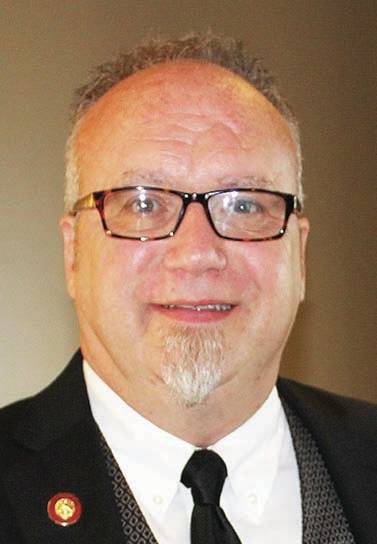Kentuckians don’t know much about history, and it’s about to get worse
Published 12:16 pm Tuesday, March 26, 2019
By Richard G. Innes
Guest Columnist
Several Kentucky newspapers recently carried a shocking story with banners like “Ky. Is 2nd-worst state in test of U.S. history.”
Only Louisiana’s citizens performed worse on a U.S. history test similar to those prospective U.S. citizens have to pass. Nearly three out of four Kentuckians flunked.
That’s bad, but things could soon get worse if a pending revision to Kentucky’s public school social studies standards are approved.
The proposed standards are truly disappointing even at a very basic level. The Kentucky Department of Education’s website says social studies include civics, geography, economics, history, anthropology, archaeology, law, philosophy, political science, psychology, religion, sociology and content from the humanities.
But the revised standards only mention the four underlined subjects as “strands” to be covered.
Who decided Kentucky’s students no longer need to know about issues of religion, law, political science and all the others?
Dig further into the proposed standards and concerns grow.
While highly regarded social studies standards from states like Indiana and Massachusetts specifically cite many historical figures that should be discussed, the revised Kentucky standards are virtually depersonalized. The only individuals mentioned are George Washington, Thomas Jefferson and Sam Adams.
A horde of important political figures like James Madison, Abraham Lincoln, Teddy Roosevelt, Theodore Roosevelt, JFK, Ronald Reagan and many more are never mentioned.
American creativity and exceptionalism are all but ignored.
Major inventors like Benjamin Franklin (also important politically, of course), Thomas Edison, George Westinghouse (his air brakes are still in use today) and the Wright Brothers are absent.
In fact, coverage of key inventions throughout history is scant.
Search for the term “invention” and the only ones mentioned are the cotton gin and ancient sailboats in Mesopotamia.
Nothing in the document discusses a minimum, common core of inventions for every Kentucky child to know. The printing press, microscope, electric light bulb, telephones, television, electric power and atomic power go unlisted.
The “atom bomb” is missing, too! How can our kids grasp current issues with Iran and North Korea with that gap in their knowledge?
The closest we get to such inventions is a hugely vague standard to, “Analyze how cultural and technological changes influenced how people interacted with their environments.”
The standards vaguely mention the civil rights movement in a depersonalized way, but search in vain to find Martin Luther King, Jr.’s name listed.
With Abe Lincoln also omitted, one can only wonder what will be expected of Kentucky’s students.
Essentially, the standards depersonalize history. The document very broadly discusses events, not the people behind them. It’s a sterile and ineffective approach.
But history isn’t the only problem. Coverage of geography is concerning.
A few terms like “Latitude” and “Longitude” do appear, but many others such as “North Pole,” “South Pole,” “Equator,” “Antarctica” and “South America” do not.
Here’s another key problem: Kentucky law now stipulates that anything not in the state’s education standards cannot appear on its assessments.
Does this mean there can be no questions about historical figures, specific inventions and a host of other things that social studies should include?
With the revised standards so vague about so many issues, does this set the stage – again – for what ultimately gets taught in our classrooms being determined by whatever is on those secret tests?
If a vague and incomplete plan for social studies bothers you, you can act.
Public comments for the standards and the enabling regulation – 704 KAR 8:060, Kentucky Academic Standards for Social Studies – are being collected until the end of March.
Send comments to Deanna Durrett, General Legal Counsel, Kentucky Department of Education, 300 Sower Blvd., 5th Floor, Frankfort, KY 40601, or via e-mail to: Deanna.Durrett@education.ky.gov.
Learn more at: http://www.bipps.org/social-studies-standards-how-to-respond/.
Richard G. Innes is an education analyst for the Bluegrass Institute for Public Policy Solutions, Kentucky’s free-market think tank. Reach him at dinnes@freedomkentucky.com.





